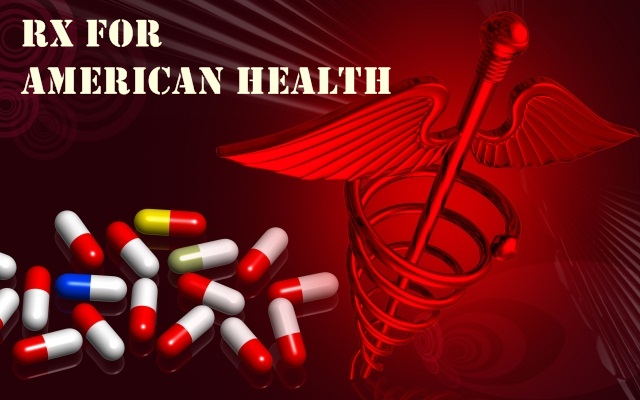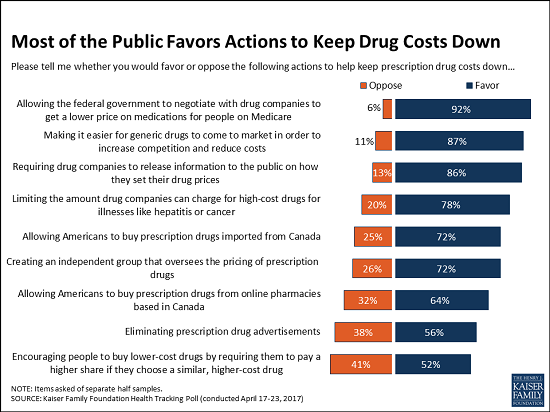President Trump urged to end opportunity for Pharma to extend control of drug prices, prescription medicine policy in US
ST. LOUIS, MO, USA, June 19, 2017 /EINPresswire.com/ -- The publisher of the TodaysSeniorsNetwork chain of advocacy websites, including TodaysSeniorsNetwork, RxforAmericanHealth and AmericanRxBillofRights, has urged President Donald Trump to “stand up for Americans’ health by standing up to Pharma” with the issuance of his plans to issue an executive order to lower drug prices.
Daniel Hines says that the President should implement such policies as personal importation of brand-name medicines form licensed registered pharmacies in Tier One countries whose standards of safety and efficacy meet or exceed those of the U.S., price negotiation for Medicare, reciprocal agreements with regulatory agencies in Tier One Countries to ensure medicines meet standards of safety, and rules to ensure pricing transparency by Pharma.
“During the election, and since taking office, the President has, on the one hand, attacked the predatory pricing practices of Pharma, while continuing to meet with pharmaceutical representatives, making appointments of key policy makers such as Healthy and Human Services Secretary Tom Price, and FDA Commission Scott Gottlieb, both of whom disdain such readily available relief from high prices as price negotiation and personal importation of medicines,” says Daniel Hines.
“That is why, after the initial rush of optimism about the President’s decision to issue executive orders to lower drug prices, news stories that the President’s actions would favor Pharma are troubling and would, if factual, continue to deny patients access to the vital lifeline of maintenance medicines that help ensure the continued health and well-being of Americans, leading to even more serious health issues that can only be addressed by catastrophically priced drugs and treatments that are beyond the reach of the overwhelming majority of Americans.”
In a blog on RxforAmericanHealth, Hines offers insights into a ‘chain of events’ that has allowed Pharma to “thumb its collective nose” to the American public and the U.S. Congress, explaining that:
“For more than a quarter-century, Americans have been victims of the predatory pricing practices of Pharma.
• Americans pay the highest prescription prices in the industrial world
• This is based upon a national policy of allowing the industry to ‘charge what the traffic will bear’
• The Pharmaceutical Industry has created alliances, influenced governmental policy, colluded with regulatory agencies designed to ensure prices are unaffordable, and literally ‘bought’ the U.S. Congress with the most contributions of any industry segment in the U.S.
• Result #1—A denial for an estimated 55 million Americans to be able to exercise their right to the health benefit made possible from access to a regimen of vital life-line medicines, simply because they are unaffordable;
• Result # 2—The ‘hoped-for’ answer to the scourge of unaffordable medicines—generic medicines—has seen price spikes that have made many of them equally unavailable to American patients;
• Result # 3—Literally millions of Americans suffer from diseases—many of them life-threatening—raising the question of a possible link to the cause-effect impact of unaffordable but vital maintenance medicines that could have benefitted patients and deterred the harmful effects of their disease;
• Result # 4—Pharma raises prices on specialty medicines to thousands of dollars for treatments, even though many of the costly medicines are older, lower-cost medicines, and manufacturers are simply taking advantage of the illness of Americans;
• Result # 5—Congress becomes indignant, holds hearings, witness testify, advocacy groups coalesce to ‘address’ price challenges, but prices remain high, Congress continues with more hearings…and Americans continue to pay the highest prices in the world…WHY?
• RESULT #6--Because Pharma and its allies in the House of Representatives and the U.S. Senate who are the beneficiaries of Pharma’s extensive contributions have controlled the discussion on how to lower prescription and health care costs while Pharma continues to rake in obscene profits, and American patients continue to be denied their medicines.
“This is more than unfortunate, it is tragic because it illustrates what can only be considered the politicization of an important American healthcare issues, e.g., the beneficial impact upon the health and well-being of American patients from access to adherence to a regimen of authentic prescription medicines,” Hines explains.
He notes that the estimates vary, but the undeniable fact is that millions of American patients forego such adherence simply because the medicines themselves are so high-priced that they are unaffordable, making them, in and of themselves, unavailable.
“We are faced with the spectacle of an ineffective response from Congress, which continues to offer narrowly defined proposals ranging from personal importation to transparency to more generics to penalties for Pharma price gouging, and conducting time-consuming hearings that result in nothing, while Pharma continues to thumb its collective nose to the American people and sets prices beyond the reach of patients,” Hines continues.
“At the same time, a score of group and organizations issue periodic statements, collective letters and develop positions that address the costs and availability of medicines that cost thousands of dollars, all the while ignoring the fact that these commendable efforts are not mutually exclusive from the inclusion as part of recognition of the harmful impact of lack of access to any medicine, and that an unaffordable maintenance medicine is just as unavailable to untold numbers of patients as a medicine that costs $120,000 a year.
“It is time for a change! American patients can’t wait any longer!,” Hines says. “It is incumbent upon President Trump to take decisive actions that will stand up to Pharma and for the American patient.”
Daniel Hines
TodaysSeniorsNetwork
636-399-2849 email us here
TodaysSeniorsNetwork
636-399-2849 email us here









